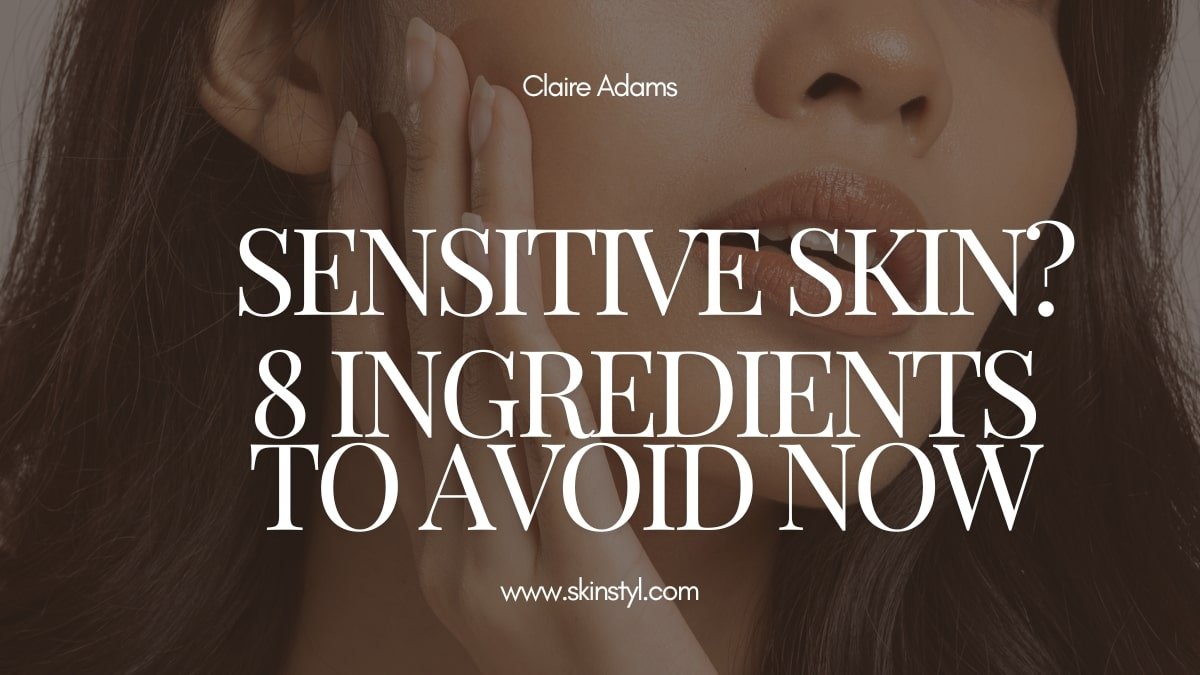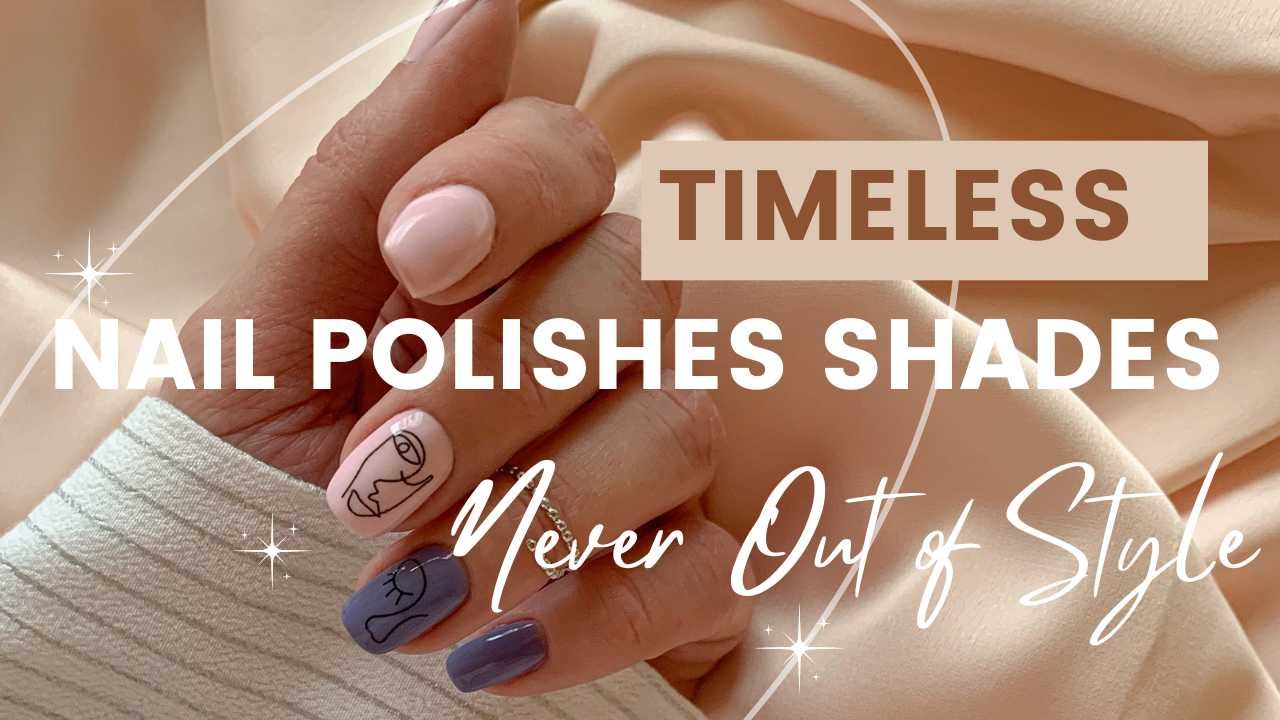Sensitive skin is a real condition millions of people in the USA, UK, Canada, Australia, UAE, and India deal with daily, not only a buzzword. Your skin probably very sensitive if it burns, stings, or reacts readily; knowledge of triggers is therefore very important. Most doctors believe that sensitive skin responds to chemicals such scent, alcohol, sulfates, and dyes—especially in 2025’s fast-changing beauty environment.
From redness to dry spots, these reactions alert the body to irritation brought on by toxic skincare products. Understanding the factors behind sensitive skin helps one prevent flare-ups before they start. Sensitive skin care in 2025 will be all on simplicity, avoidance of harmful substances, and prevention.
Why Ingredients Count in Sensitive Skin Care
Ingredients make all the difference for sensitive skin—especially in skincare trends for 2025 in the USA, UK, Canada, Australia, UAE, and India. Strong acids, synthetic colors, and alcohol among other harsh skincare products can cause irritation. Sensitive skin care today means looking for sulfates, parabens, or fragrance on every product label.
Dermatologists agree: just as important as utilizing soothing chemicals is avoiding negative ones for sensitive skin. Ingredient transparency is huge worldwide in 2025, and more users now use apps to spot harmful skincare ingredients. If you have sensitive skin, choosing the correct products entails safeguarding your barrier—beginning with what’s inside the bottle.
Top 8 Bad Ingredients to Steer Clear If You Have Sensitive Skin
Avoiding damaging skincare products is crucial if you have sensitive skin—especially in 2025 beauty regimens all throughout the USA, UK, Canada, Australia, UAE, and India. Top skin irritants among experts are fragrance, alcohol, parabens, sulfates, and colors. Synthetic colorants, strong exfoliants, and formaldehyde-releasing preservatives might aggravate redness, burning, or breakouts.
Sensitive skin reacts fast, and these ingredients strip your skin’s barrier. In 2025, sensitive skin care means cutting out what doesn’t serve you. Skincare for sensitive skin now focuses on clean formulas with zero irritants. Read every label and ditch anything with ingredients known to trigger sensitive skin reactions.
What “Fragrance-Free” Really Means in 2025 Skincare
In 2025, “fragrance-free” isn’t just a label—it’s a must for sensitive skin, especially in the USA, UK, Canada, Australia, UAE, and India. Many skincare products claim to be gentle, but hidden fragrance ingredients still trigger reactions. Dermatologists say even “natural” scents can irritate sensitive skin. If your skincare contains hidden fragrance or masking agents, it’s not truly safe for sensitive skin.
Today’s skincare for sensitive skin focuses on full ingredient transparency. Look always for botanical extracts, fragrance, or essential oils. Fragrance-free skincare in 2025 will mean zero irritants—no fragrances, no essential oils—just clean beauty that shields your sensitive skin barrier.
The Real Deal on Alcohol in Skincare for Sensitive Skin
alcohol in cosmetics is dangerous if you have sensitive skin—especially in 2025 in the USA, UK, Canada, Australia, UAE, and India. Many products still use alcohol-based formulas that dry out skin and damage the barrier. Dermatologists say avoid ingredients like denatured alcohol or ethanol—they strip moisture fast.
For sensitive skin care in 2025, hydration and barrier support are top priorities. Alcohol-free skincare is trending worldwide for people with skin sensitivity. Always check labels for “alcohol” listed early. Sensitive skin reacts quickly to harsh ingredients, and alcohol is a major one to ditch. Clean, gentle, and alcohol-free is the way forward.
Why Parabens Should Raise Concerns for Sensitive Skin in 2025
Although parabens are still prevalent in skincare, they should be avoided if you have sensitive skin particularly in 2025 treatments all throughout the USA, UK, Canada, Australia, UAE, and India. Particularly on already susceptible skin, these synthetic preservatives might aggravate irritation. Parabens, according to dermatologists, could upset the skin barrier and lead to redness or irritation.
By 2025, sensitive skin care calls for paraben-free, cleaner products that protect rather than damage. Look always for clearly labeled “paraben-free”. You should start switching if your skincare contains propylparaben or methylparaben. Sensitive skincare now means zero compromise. Globally, paraben-free is no longer optional—it’s expected for healthy, balanced sensitive skin.
Why Sulfates Are Harsh on Sensitive Skin in 2025
Though they are prevalent in skincare, sulfates are too harsh for sensitive skin—especially in 2025 USA, UK, Canada, Australia, UAE, and India routines. Natural oils are stripped by sulfates such as SLS and SLES, leaving sensitive skin dry, itchy, and inflammatory. Dermatologists today counsel against soaps, shampoos, and cleansers based on sulfates. Gentle, non-stripping formulations that preserve your skin’s barrier will define sensitive skin care in 2025.
If your skincare bubbles too much, check the label—it likely contains sulfates. Worldwide, sulfate-free skincare is trending. Sensitive skin needs balance, not foam. Go for clean, hydrating products that calm, not damage, your skin.
Synthetic Dyes and Their Aggravation of Sensitive Skin in 2025
For sensitive skin notably in the USA, UK, Canada, Australia, UAE, and India, synthetic dyes in skincare will be a major issue in 2025. Though they seem good, these synthetic colorants can irritate, redish, and cause rashes. Dyes include Red 40, Yellow 5, and Blue 1 should not be used on reactive skin types, dermatologists advise.
In 2025, delicate skincare must avoid synthetic colors. See the ingredients if your lotion or cleanser has color. Globally, clean, dye-free products are becoming rather popular. Sensitive skin need quiet, clean, safe treatment that honors your natural skin barrier; it does not require additional color.
Natural Doesn’t Always Mean Safe for Sensitive Skin in 2025—Essential Oils
Essential oils will be omnipresent in 2025, but for sensitive skin—especially in the USA, UK, Canada, Australia, UAE, and India—they can do more damage than benefit. Although oils including tea tree, lavender, and citrus seem natural, dermatologists caution they often cause allergic responses, redness, or discomfort.
Sensitive skincare in 2025 calls for skin-safe formulations, not only a “natural” label. an beauty now means being mindful of essential oils. Sensitive skin thrives on gentle care, not trending ingredients that overwhelm. Always read labels before applying anything “natural.”
Why Should Sensitive Skin in 2025 Skip Products Based on Alcohol?
Particularly in the USA, UK, Canada, Australia, UAE, and India, alcohol-based skincare will be a main cause of sensitive skin globally in 2025. Ingredients like denatured alcohol or ethanol peel the skin, rendering it dry, red, and irritated. These days, dermatologists advise against using toners and serums including strong alcohols.
Sensitive skin in 2025 needs hydration, not dehydration. Go for alcohol-free formulas that soothe and protect. Clean beauty brands are removing alcohols to meet 2025 skincare trends. Check the label; your skin seems to hurt or feels tight. Gentle treatment is what sensitive skin deserves; harsh chemicals that destroy the barrier and aggravate it are not what it deserves.
See the label if your skin feels stinging or tight. Gentle care is what sensitive skin needs; harsh chemicals that destroy the barrier and aggravate it are not what it deserves.
Preservatives That Affect Sensitive Skin Globally by 2025
While preservatives keep goods fresh, some will be too strong for sensitive skin in the USA, UK, Canada, Australia, UAE, and India by 2025. Common irritants include parabens, methylisothiazoline, and formaldehyde releasing chemicals. These preservatives have dermatologists warning about redness, irritation, and flare-ups. For 2025 sensitive skincare, opt for clean labels with safer preservation systems.
Sensitive skin thrives on stability, not stress. Worldwide beauty trends now favor minimal, low-irritant formulas. Always scan ingredient lists carefully. If your skin acts up after using a product, preservatives may be the hidden culprit. Sensitive skincare in 2025 is about smart choices.
How to Build a Sensitive Skin Routine That Works in 2025
Sensitive skin in 2025 requires a basic regimen—particularly in the USA, UK, Canada, Australia, UAE, and India. Start with a gentle, scent-free cleanser; then, use an alcohol-free toner; last, apply a nourishing serum free of parabens or sulfates. Strong essential oils, synthetic colors, and comedogenic ingredients are discouraged by dermatologists.
In 2025, sensitive skincare is more about preserving your skin barrier with non-irritating, clean products. Worldwide, people now prioritize barrier care over 10-step routines. Choose fewer products with safer ingredients. Stick to what your skin needs, not trends. In 2025, sensitive skin will radiate if you treat it with respect and care.
Often Ask Questions
Which skincare products, in 2025, should sensitive skin avoid most?
Steer away of synthetic fragrance, alcohol, parabens, sulfates, and essential oils. Particularly in USA, UK, Canada, Australia, UAE, and India skincare items, these ingredients agitate all around sensitive skin.
Is fragrance harmful for 2025 sensitive skin?
Indeed, synthetic scent in 2025 skincare hurts delicate skin in USA, UK, Canada, Australia, UAE, and India. Select items free of fragrances to preserve your skin barrier.
Why should sensitive skincare steer clear of parabens?
In 2025 parabens will be bad for delicate skin. Skincare free of parabens is advised by experts in USA, UK, Canada, Australia, UAE, and India to reduce allergies, irritation, and skin barrier breakdown.
Are safe for sensitive skin in 2025 essential oils?
Essential oils will set off reactions in sensitive skin all throughout the USA, UK, Canada, Australia, UAE, and India in 2025. Steer clear of oils such peppermint, lavender, and tea tree always.
Can alcohol in skincare aggravate generally sensitive skin?
Indeed, in 2025 alcohol dries fragile skin and irritates it. Dermatologists in USA, UK, Canada, Australia, UAE, India advise skincare devoid of alcohol for better hydration and healing.
What perfect skincare routine for sensitive skin will we have in 2025?
In 2025 gentle cleansers, barrier creams, fragrance-free cosmetics will reign USA, UK, Canada, Australia, UAE, and India. Steer clear daily of parabens, sulfates, and essential oils.
How should I interpret skincare labels to steer clear of irritants by 2025?
Look always for parabens, sulfates, alcohol, and scent. Consumers in the USA, UK, Canada, Australia, UAE, and India will want ingredient transparency in all sensitive skincare products in 2025.
Will sensitive skin in 2025 always benefit from natural ingredients?
Not always. Even natural oils could damage delicate skin in 2025. Before first usage, experts in USA, UK, Canada, Australia, UAE, and India stress testing every skincare.
Why should sensitive skin safety take the stage in skincare trends for 2025?
Beauty trends in USA, UK, Canada, Australia, UAE, and India in 2025 stress skin sensitivity resulting from pollution, extreme weather, and substance excess. The worldwide change follows from clean beauty.
In 2025 can I continue follow skincare trends with sensitive skin?
Indeed, in 2025 delicate trends like microbiome care and barrier-repair skincare rule USA, UK, Canada, Australia, UAE, and India—safely allowing sensitive skin to remain fashionable and protected.
Conclusion:
Sensitive skin needs protection in 2025, not difficulties. Avoiding dangerous components including sulfates, parabens, alcohol, synthetic perfumes is essential regardless of your country—USA, UK, Canada, Australia, UAE, or India. Globally, dermatologists agree—gentle skincare wins. In 2025, sensitive skincare trends will all rev around simple, soothing, barrier-safe formulations.
Every product you use should be free of irritants and emphasise healing and hydration. Don’t follow hype—follow what works for your skin. Choosing the right skincare in 2025 is not just smart; it’s necessary. Your skin deserves better, and now you know what to avoid—globally and confidently.

SkinStyl was founded by Claire Adams, a beauty enthusiast who believes in the power of confidence, self-care, and personal expression. Claire is passionate about skincare, makeup, and all things beauty, and she’s dedicated to helping others embrace their unique glow. With a love for adventure and a creative spirit, she inspires others to feel their best, inside and out.
Thank you for being a part of SkinStyl. Let’s create your own beauty magic!




